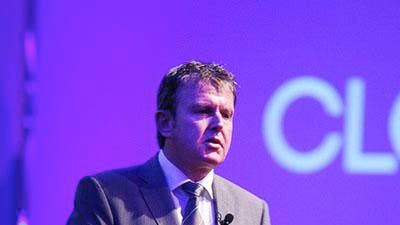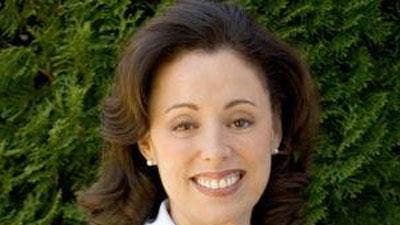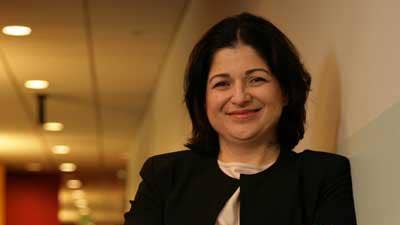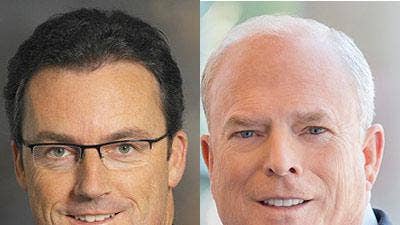Cisco's Changing Of The Guard: 8 Executive Moves That Illustrate CEO Robbins' Software-Centric Push
Cisco CEO Chuck Robbins has moved aggressively to transform the networking giant to a software- and subscription-focused company. Here are the major Cisco executive moves that have accompanied Robbins' push into the software-centric world.
Executive Decisions
Since taking the helm as Cisco CEO about three years ago, Chuck Robbins has moved aggressively to transform the legacy networking giant to a software- and subscription-focused firm, and that drive has shown up in the additions to and departures from the company's executive ranks.
Robbins is clearly after executives with deep backgrounds in and knowledge of software, and he has shown himself more than willing to recruit executives from outside Cisco. That's a significant departure from the hire-from-within strategy employed by his predecessor John Chambers, and it has brought Cisco several of its newest high-profile executives.
On the flip side, Cisco has said goodbye to a number of long-serving executives, the latest being Americas sales chief Alison Gleeson, who announced her departure Thursday after more than 20 years at the San Jose, Calif., company.
Robbins' strategy is beginning to take hold in the market. Cisco's subscription-based Catalyst 9000 series has attracted nearly 6,000 customers in less than a year. In the company's third fiscal quarter, recurring revenue accounted for nearly a third of total revenue and subscriptions accounted for about 55 percent of total software revenue.
Here are several major Cisco executive moves that have accompanied Robbins' push into the software-centric world.
Alison Gleeson
Gleeson announced her decision to her team Thursday morning. She is staying on with the company until the end of its fiscal year July 28. Gleeson is a 20-year-plus Cisco employee who started with the company in 1996 as a regional sales manager and worked her way up through the company's commercial sales ranks before taking the position as senior vice president, Americas nearly four years ago. Along the way, Gleeson developed a reputation as a channel-friendly exec who wasn't averse to working in the sales trenches. "Leadership transitions are a very natural and normal part of a company transformation," Cisco said in a statement to CRN. "While it can be hard to see good leaders go, it provides other talent with the opportunity to step up and it gives the company a chance to bring in new perspectives." Cisco hasn't named Gleeson's replacement.

Chris Dedicoat
Dedicoat, who like Gleeson worked at Cisco for more than 20 years, stepped down from his position as executive vice president of worldwide sales last December. Prior to Dedicoat, that position was held by Robbins himself, and Robbins handpicked Dedicoat as his successor in July 2015. He was Robbins first major executive appointment as CEO. When it was announced that Dedicoat would step down, Gleeson was said to be a candidate for the role. Both Dedicoat and Gleeson are staying on until the end of Cisco's fiscal year on July 28.

Gerri Elliott
Cisco announced in late March that Elliott would replace Dedicoat. Before joining Cisco, Elliott was an executive vice president and strategic advisor at rival Juniper Networks. But it is perhaps Elliott's previous experience that made her a fit for the new Cisco. Before joining Juniper, Elliott spent seven years at Microsoft, where she was corporate vice president of worldwide corporate sector sales, where she was responsible for developing a software-focused sales strategy focused on government, education and health care customers.

Maria Martinez
Robbins made Martinez executive vice president and chief customer experience office at the same time he hired Elliott, and like Elliott, she arrived at Cisco with significant software experience. She was previously president of customer success and success cloud at customer relationship management software powerhouse Salesforce. Martinez has held technology leadership positions for more than 30 years, and managed Microsoft's global services business before joining Salesforce.
Rowan Trollope
Trollope left his job as senior vice president and general manager of applications at Cisco in early May to take the CEO job at cloud software firm Five9. Trollope, a highly respected member of Cisco's leadership team, came to Cisco in 2012 from Symantec to run Cisco's collaboration unit, which develops products like Webex. In 2015, he also took responsibility for the company's worldwide IoT business. Just before Trollope's departure, Cisco rolled its Spark collaboration business into the Webex product. Trollope's exit matched up with Cisco's $270 million acquisition of Accompany. Amy Chang, Accompany's CEO and Cisco board member, replaced Trollope.

Amy Chang
Chang founded Accompany in 2013, and had been a member of Cisco's board since 2016 before taking on the role of senior vice president of Cisco's Collaboration Technology Group. Chang's background fits well with Robbins' effort to build a software-focused executive leadership team. Chang has been a director and advisor to a slew of Silicon Valley software start-ups, most notably Splunk and Informatica. Between 2005 and 2012, she was a product leader at Google, where she ran the analytics platform that measures the effectiveness of its advertising services.

Rob Lloyd And Gary Moore
The day before Robbins took over as Cisco CEO, he published a blog post announcement that Rob Lloyd (pictured far left), president of development and sales, and Gary Moore, president and COO, were leaving the company. "Going forward, we will move to a flatter leadership team designed for the speed, innovation and execution that is required of us over the next decade," the post read. Lloyd had been with Cisco for just over 20 years. He is now CEO of Virgin Hyperloop One, a space-age transportation firm. Moore held his president and COO position for nearly 14 years.
Ruba Borno
One of Robbins' first executive hires, Borno joined Cisco as chief of staff and vice president of growth initiatives. She joined Cisco from Boston Consulting Group, where she was principal and leader in technology, media and telecommunications, people and organizations. Borno's expertise is in strategic transformation, post-merger integration, portfolio and organization optimization, execution and growth strategies for enterprise technology companies. In short, she helps companies change.